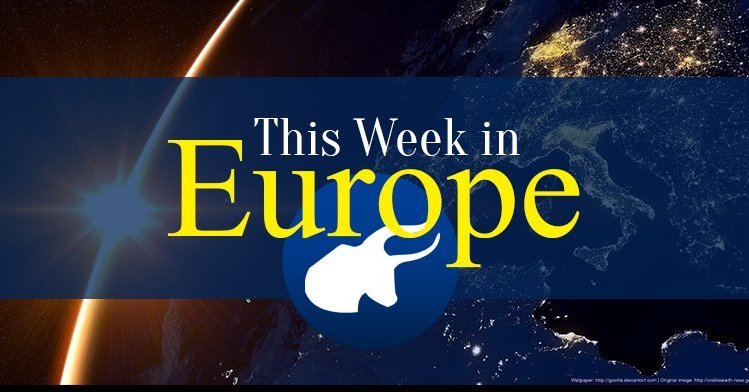Drought hits European farmers & Christmas trees
This week, the European Commission decided to aid the farmers of the continent by relaxing the green requirements that they need to fulfill. The move comes after the European Drought Observatory issued a warning of intense drought in central and northern Europe starting in May. Europe has seen record temperatures all summer, sometimes breaking 45 degrees Celsius. As a result, cultures of hay, cereal, corn and potatoes have been affected, prompting farmers to struggle to irrigate as much as possible. Aside from looser regulations, farmers will be receiving their direct and rural development payments in advance this year, and will be able to be more flexible in crop diversification.
Aside from crops, this year’s Christmas trees were also hit by the drought. In the Ardennes, reports told that up to 30% of trees in the nurseries have died, and that a prolonged drought would cause even more damage, in a situation that has been described best as “not yet catastrophic.”
Scandals continue for the Spanish Popular Party
On Monday, a court in Madrid asked the Spanish Supreme Court to look into the Master’s Degree of conservative leader Pablo Casado. The newly elected leader of the Popular Party allegedly received the degree as a form of bribery at the King Juan Carlos University. Moreover, an entire group of students with political weight, including another leader of the PP, Cristina Cifuentes, have apparently received degrees without having any academic merit. While Casado denied any wrongdoing, the scandal comes at the worst time for the Popular Party, which lost power in June after Mariano Rajoy was ousted as PM following a corruption scandal.
Commission vows to save lives after migrant death spike
On Wednesday, the European Commission reacted to a report showing a surge in deaths of people attempting to cross the Mediterranean Sea by vowing to save the lives of migrants. While crossings have dropped in number, more than 721 people have perished into the sea in the months of June and July 2018, a death rate of 1 in 16, as registered by Amnesty International. In order to tackle the situation, the Commission is training and equipping the Libyan Coast Guard, although the same body previously saw Libya as unfit for migrants due to reports of slave markets, torture and rape. Nevertheless, European governments have rushed to aid Libya in its handling of migrants, with Italy alone donating dozens of patrol vessels to the Libyan coast guard. At the same time, a crackdown on NGO-run ships has left migrants without allies in the sea.
Brexit weakens British football, says Tottenham manager
In football, summer is a period of transfers. This year, however, was a failure for English football club Tottenham Hotspur, whose manager, Mauricio Pochettino, blamed the weak British pound for his club’s inability to bring in new players. As the British sterling hit a 9-month low against the euro this month, players became too expensive for the U.K. club. Pochettino argued that because of the 2016 referendum, whose fruition is set for 2019, “players cost 30% more.” Despite having Harry Kane and Hugo Lloris in its ranks, Tottenham has become he first Premier League club in history not to add fresh faces in the summer.
Greece imports phosphate from Assad’s Syria
Until 2011, Syria supplied almost one fifth of EU’s phosphate shipments. Mainly used as fertilizer, the transports of the mineral have been revived almost exclusively by Greece. Obtained in mines around the city of Palmyra, previously held by the Islamic State, the exports of phosphate have become vital to Assad due to the international sanctions on Syrian goods - mainly oil. While the amounts currently being shipped are small compared to the pre-war period, the mines in Syria are reportedly being brought back online by Russian investors, specifically by Gennady Timchenko, one of the people placed on the U.S. sanctions list - but not by the EU - in 2014 after the invasion of Crimea. As for Athens, it was one of the main opponents to EU sanctions on Syrian phosphate and one of the main proponents for a sufter line against Russia after the conflict in Ukraine.
Romanian gendarmes violently break up protest
On Friday, the Romanian capital of Bucharest was shaken by massive anti-government protests. Romanians living and working abroad came back home to demand a stop to corruption and the anti-justice laws promoted by the governing Social Democratic Party. In total, about 100,000 people showed up in Victory Square, in front of the headquarters of the government. Starting out peacefully, violence overcame the protest as a few groups of hooligans connected to football clubs clashed with gendarmes.
Police forces, however, used water cannons and tear gas indiscriminately afterwards, against a crowd filled with old people and children. In total about 450 people needed medical attention, prompting president Klaus Iohannis, an opponent of PSD, to condemn the intervention of the gendarmes and to ask for explanations from the Interior MInister Carmen Dan. The minister defended the actions of the police forces and argued that there is no need for her resignation.
Boris Johnson compares burqas to bank robbers
Former U.K. Foreign Secretary and one of the main proponents of Brexit, Boris Johnson came under fire this week after comparing women in burqas to “bank robbers” and “letter boxes.” In response, the Conservative party launched an internal investigation to see if Johnson has breached the party code of conduct. Prime Minister Theresa May and party Chairman Brandon Lewis called on Johnson to apologize, but he has not responded.
Belarus arrests Deutsche Welle reporter
This week, Germany, Reporters Without Borders and the rights organization Council of Europe responded to the arrest of several journalists - including a long-time corresponded for the German broadcaster Deutsche Welle - by Belarus. Arrested on Wednesday, DW reporter Paulyuk Bykowski’s home was also searched, and his computers, phones and bank cards seized. Prior to the raid, Bykowski made a radio appearance in which he discussed other raids carried out by Belarus authorities on fellow Belarussian outlets. Accused of illegally accessing online information belonging to the state-owned news agency BelTA, the previously raided journalists face up to two years in jail. Reporters Without Borders ranked Belarus 155th in its 2018 World Press Freedom Index.


Follow the comments: |
|
